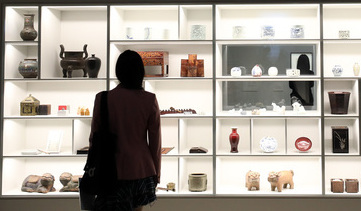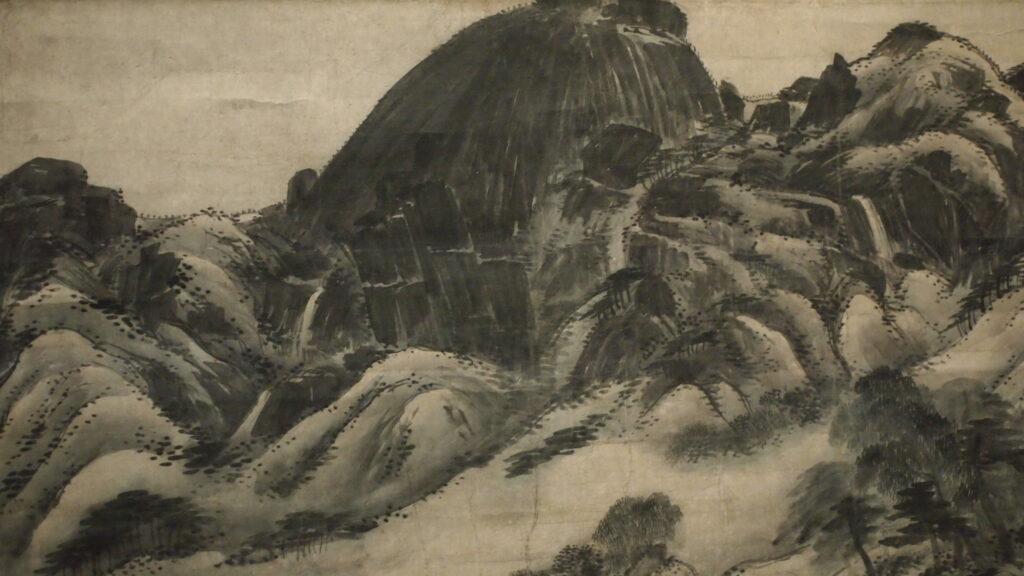
The candidate site for the ” Lee Kun-hee Donation Hall” (National Donation Lee Kun-hee Collection Hall) was narrowed down to Songhyeon-dong and Yongsan, Seoul. On April 28, Samsung’s bereaved families donated 23,000 “Lee Kun-hee Collection” to the National Museum of Korea (hereinafter referred to as the National Park) and the National Museum of Modern and Contemporary Art (hereinafter referred to as Kook-hyun), and each local government’s bid for the so-called “Lee Kun-hee Art Museum” was hot, but it was eventually set as Seoul.The decision came after 10 discussions by the Ministry of Culture, Sports and Tourism, which consisted of four ex officio members, including the head of the National Museum of Korea and the head of the National Museum of Modern and Contemporary Art, and experts. The late Chairman Lee Kun-hee is an indispensable businessman in Korea.He is the one who made Samsung Group leap forward as a global company, and is an entrepreneur who raised Samsung Group as the top company in semiconductor and electronics. Donated by him
For now, it is interpreted that the focus is on the actual role of museums and art galleries. Local governments insisted on attracting local governments in order to promote cultural enjoyment and tourism for citizens in each region, but museums and art galleries are not all about building buildings at a huge amount of money. Above all, it seems to have confirmed that it is important to establish an integrated management, investigation, and research system for donations.

Kim Young-na, former head of the National Museum of Korea, who headed the National Donation Committee, stressed at a briefing by the Ministry of Culture, Sports and Tourism on the 7th, “The most important part was research and management.” “In order to preserve, manage, and display various artworks from oil paintings to Buddha statues and ceramics, experience from the National Museum of Korea and the National Museum of Modern and Contemporary Art in Seoul is needed,” former director Kim said. I thought it would be smooth in many ways if the donation was in Seoul, he explained.
The fact that Yongsan and Songhyeon-dong can maximize synergy in connection with other cultural infrastructure also seems to have played a big role. Around the site of Songhyeon-dong, there are Gyeongbokgung Palace, Insa-dong, the Seoul Museum of Contemporary Art, and the Seoul Craft Museum (opened on 15th). In addition, dozens of art galleries are located near Samcheong-dong. More broadly, the cultural “Gori” continues to Changdeokgung Palace, Deoksugung Palace, and Namdaemun.Yongsan also has great potential. Currently, the candidate site is a site owned by the Ministry of Culture, Sports and Tourism (168-6 Yongsan-dong) in Yongsan Family Park, which is not related to the planned site for the construction of Yongsan Park. It is right next to the National Museum of Korea and is also close to the National Hangeul Museum. In addition to Lium, Samsung Art Museum, which is another main product of the “Lee Kun-hee Collection,” more than 20 museums and art galleries, including AmorePacific Museum and Yongsan Museum of History (scheduled to open in 2022), are also gathered. The Ministry of Culture, Sports and Tourism said, “The Yongsan site is government land, so there is no additional cost to purchase the site.”
It is also noteworthy that Songhyeon-dong, where the late Chairman Lee Kun-hee took over during his lifetime, is a place where he has a relationship with the late Chairman Lee Kun-hee. Lee Ho-jae, chairman of Seoul Auction, said in an exclusive interview with this newspaper on the 2nd of last month, “The land in Songhyeon-dong was purchased by Chairman Lee Kun-hee as an art museum site.” Chairman Lee Ho-jae said, “We bought it in 1997 with the construction of an art museum and an opera house in mind, and even entrusted the design to U.S. architect Frank Gary.” However, he suffered ups and downs, such as the foreign exchange crisis and the change of ownership to Korean Air.Korean Air, which took over the site in 2008, planned to build a top-notch hotel, but it was at odds with Seoul City when it was Mayor Park Won-soon over licensing, and now the transfer of ownership to Seoul is underway. To build an art museum on the site of Songhyeon-dong, the Korea Land and Housing Corporation (LH) must buy the land from Korean Air, and LH must go through the process of trading the land for the city’s municipal land.Ancient and contemporary art in one place
Regarding the government’s choice of “Seoul,” whether it is Yongsan or Songhyeon-dong, Yoo, former head of the Cultural Heritage Administration, said, “The possibility of connection with Samsung Museum Leeum will also be meaningful.” Former director Yoo said, “The Lee Kun-hee Collection is virtually like taking some of Lium’s collection and donating it to the state,” adding, “It is right to see all donations, whether they are ancient or modern art as one with Lium’s collection.” It seems to have also taken into account the connection,” he said.
It is the first time that the central government has come forward to create a separate facility in the wake of an individual’s donation, like the “Lee Kun-hee Donation Center.” Until now, Kukbak has operated “Lee Hong-geun’s Room” (1900-1980) by Dongwon Lee Hong-geun, who donated 4,900 artifacts, an exhibition room named after the donors, and a donation cultural property room that carefully selects and presents donated cultural assets.
It is also the first time that a national cultural facility will be established that combines ancient art and modern art. Some criticized that “collecting all ancient and modern art in one place is creating a ‘world of all things’, not this or that.”
However, Minister of Culture, Sports and Tourism Hwang Hee said, “The integrated museum is suitable for promoting the spirit and philosophy of donors.”
Park Myung-soon, a regional culture policy officer at the Ministry of Culture, Sports and Tourism, said, “The Getty Museum in LA also shows everything from ancient to modern art,” adding, “We expect to create a greater synergy effect by gathering together.” In addition, “In Korea, it is divided into state-owned and state-owned, so there was a lack of integrated exhibitions.” The construction of the “Lee Kun-hee Donation Hall” may be a good opportunity for the exhibition of Tongsub, he explained.
SAM KIM
ASIA JOURNAL

